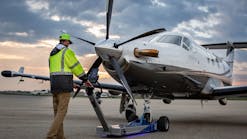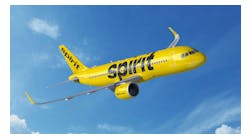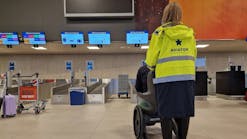DUBAI, UAE — Several airlines flying the type of plane involved in the Air France crash said Tuesday they use a different brand of airspeed sensor than those aboard the doomed flight, distancing themselves from instruments seen as a possible factor in last week's accident.
At the same time, other carriers that use probes similar to those on the flight — including Delta Air Lines Inc. and the Middle East's Qatar Airways — said they are working to upgrade the devices on dozens of Airbus planes.
The plane disappeared over the Atlantic Ocean while on a flight from Rio de Janeiro to Paris, killing 228 people on board.
Focus on the sensors known as Pitot tubes intensified after Air France issued a statement last week saying it was in the process of replacing the instruments on the Airbus A330 model.
The cause of Air France Flight 447's crash on May 31 remains unclear. But one theory is that the sensors became iced over and gave incorrect readings. That could have caused the plane to fly either too slow or too fast.
The sensors aboard the plane were made by France's Thales Group and had not yet been replaced. Thales spokeswoman Caroline Philips confirmed the company made the Pitot tubes on the jet that crashed. The defense and aerospace manufacturer did not provide details on the devices or say how many other planes use them.
Emirates, the Middle East's largest airline and one of the biggest A330 operators, said the Pitot tubes aboard its planes were made not by Thales but by U.S. manufacturer Goodrich Corp. of Charlotte, North Carolina.
"We have not experienced any issues with our probe units," said Adel al-Redha, Emirates executive vice president for engineering and operations. "Emirates is in full compliance with all standard operating procedure recommendations issued by aircraft manufacturers, as well as with requirements stipulated by international air safety and regulatory authorities."
The Dubai-based carrier operates 29 of the A330-200 variant, more than any other airline. The model is the same used on Air France Flight 447.
Abu Dhabi's Etihad Airways and Australia's Qantas Airways said their A330s are also equipped with Goodrich speed sensors.
"We are not concerned because it's a different system in our aircraft," Qantas General Manager for Government and Corporate Affairs David Epstein said.
A Goodrich spokeswoman could not be immediately reached for comment.
Pitot tubes and accompanying sensors feed crucial airspeed data and other information into cockpit computer systems. The sensors work in the same basic way, but may be designed differently depending on the plane type and manufacturer.
"It's like (aircraft) brakes. Some people use carbon, some people use steel," said independent airline consultant Bob Mann.
Concerns over the Thales sensors led an Air France union Monday to urge its pilots not to fly Airbus A330s and A340s unless at least two of the three Pitot sensors had been replaced. The Alter union represents about 12 percent of Air France pilots.
In a reflection of the growing concern surrounding the instruments, Qatar Airways posted a statement on its Web site Tuesday saying it is completing an "Airbus-approved modification" of Thales probes on all of its Airbus A319, A320, A321, A330 and A340 aircraft. The over 50 planes account form the bulk of the carrier's fleet.
Qatar Airways said the retrofit began last year, with 21 planes modified so far.
Atlanta-based Delta is currently installing new Pitot tubes from Thales on its A330 aircraft per the manufacturer's recommendation, spokeswoman Betsy Talton said.
"Until these installations are complete, we are communicating with our flight crews to reiterate the correct procedures to be used in the event of unreliable airspeed indications," Talton said.
Delta subsidiary Northwest Airlines also has installed new Pitot tubes on its A319/320 aircraft, Talton said.
Delta, the world's largest airline operator, owns 11 A330-200s and 21 A330-300s. It owns or leases 57 A319-100s and 69 A320-200s.
Tempe, AZ-based US Airways, the other major U.S. A330 operator, has begun replacing the Pitot tube component on its A330s out of an abundance of caution, spokeswoman Michelle Mohr said, though she declined to identify the manufacturer. Nine of the carrier's 11 A330s are in regular service.
In Brazil, the private Agencia Estado news agency said the country's largest airline, TAM Linhas Aeras SA, has already replaced the Pitot tubes on its Airbus jets. TAM made the replacements after a 2007 recommendation from Airbus, Chief Executive David Barboni told Agencia Estado.
Brazil's air force, meanwhile, said that technicians would replace the Pitot tubes on an Airbus A319 used by President Luiz Inacio Lula da Silva because of a recommendation from the jet's manufacturer more than a month before the Air France crash.
Air force Col. Henry Munhoz said the tubes will be replaced during regular maintenance now under way, but insisted the work was not being performed because of the crash.
About 70 airlines operate versions of the 600 twin-engined A330s in use around the world.




